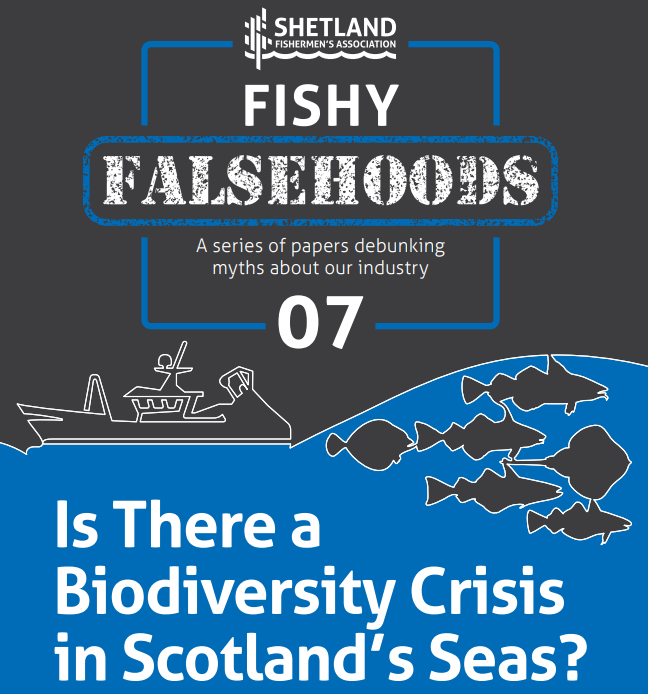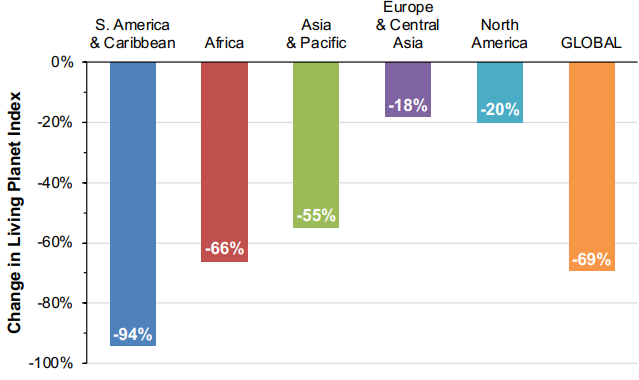|

Fishermen challenge the idea of a biodiversity crisis in Scotland’s seas
 UNITED KINGDOM
UNITED KINGDOM
Friday, September 22, 2023, 07:00 (GMT + 9)
Fishermen in Shetland say that the extent of biodiversity loss in the country’s seas has been greatly exaggerated in the public’s mind.
 While Scottish Government ministers and others are assuming that there is a biodiversity crisis in Scottish waters, the available evidence shows that it is mostly occurring in the tropics and outside Europe. While Scottish Government ministers and others are assuming that there is a biodiversity crisis in Scottish waters, the available evidence shows that it is mostly occurring in the tropics and outside Europe.
In the latest of its Fishy Falsehood papers – intended to help debunk myths and misleading claims about the industry – Shetland Fishermen’s Association points to clear evidence that marine species are continuing to thrive in Scottish seas.
While the study acknowledges that there has been a decline in the abundance of seabirds, it points out that much less attention has been paid to significant increases in fish and invertebrate populations – as highlighted by NatureScot, the Scottish Government’s nature agency.
Over the last 20 years, the average abundance in Scottish waters of 147 species of bony fish (common fish including haddock, cod and similar species) increased by 94%, while six species of crabs, lobster and scallops increased by 99%, i.e. doubled.
Meanwhile, the average abundance of 37 species of sharks, skates and rays increased by 301%, compared to a global decline of 71%.


The average abundance of 11 species of cephalophods (squid and octopuses) increased by 398%.
Similarly, the spawning stock biomass of six commercial fish stocks more than tripled between 1999 and 2022, at the same time as the average fishing mortality rate – a measure of fishing pressure on stocks – decreased dramatically (to less than a quarter of what it was in the late 1980s).
 FIS Seafood Media.png) SFA executive officer Daniel Lawson said: “The Scottish public are being led by environmental lobbyists into assuming that there is a marine biodiversity crisis - without actually being shown any evidence. SFA executive officer Daniel Lawson said: “The Scottish public are being led by environmental lobbyists into assuming that there is a marine biodiversity crisis - without actually being shown any evidence.
“Biodiversity loss is a serious global problem. But there is no evidence of it having actually taken place in Scotland’s seas – and in fact some good evidence to the contrary – with huge increases in many marine species according to published Scottish Government data.
“This assumed crisis in Scottish waters is increasingly used to justify fishing policies. However, policy should be based on evidence – and not assumptions. Fishermen in Shetland encourage our policy makers to read our Fishy Falsehood papers, analyse the Scottish Government’s own statistics on marine species populations, and take in to account the continuing growth in fish stocks as revealed by recent scientific advice.”
The full SFA paper is available here.
The NatureScot data can be viewed here: Official Statistics - Marine and Terrestrial Species Indicators: Experimental Statistic | NatureScot
In addition, statistics on the state of Scotland’s commercial fish stocks can be seen via this link
[email protected]
www.seafood.media
|



